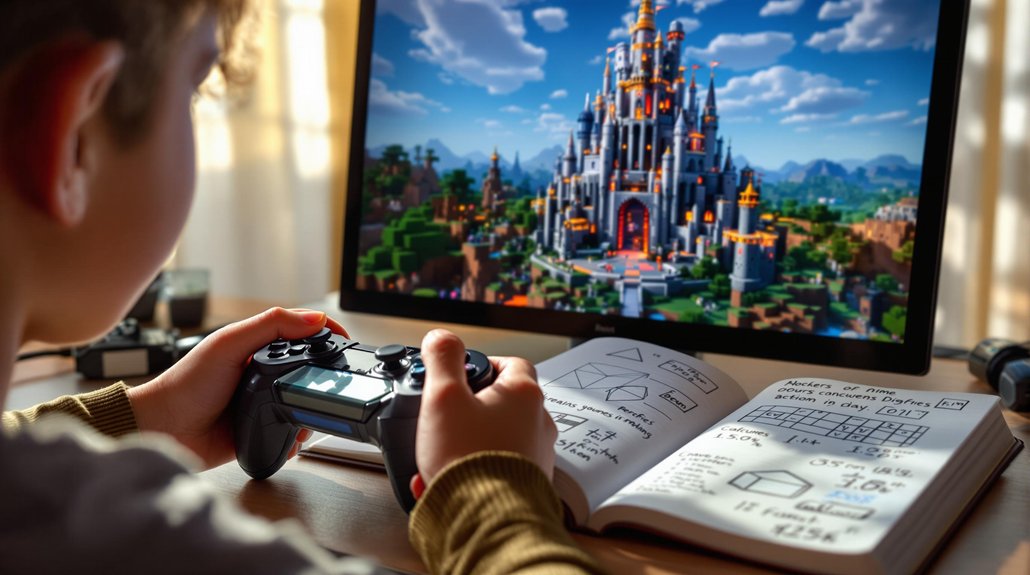Minecraft continues to enthrall millions of children worldwide, but its appeal goes beyond mere entertainment. Research suggests the block-building game develops essential cognitive skills that many parents overlook. Kids who navigate Minecraft’s virtual landscapes aren’t just playing—they’re solving problems, expressing creativity, and building social connections. While adults might see only screens and pixelated characters, experts point to significant developmental benefits happening beneath the surface. What exactly are these hidden advantages that have educators increasingly incorporating this digital playground into learning environments?
Creativity and cognitive growth find a digital playground in the popular game Minecraft. The blocky virtual world offers more than just entertainment; it provides a space where young minds can stretch their imagination in ways many adults don’t recognize. Players design unique structures, develop personal worlds, and make countless aesthetic decisions that foster creative self-expression.
Behind the pixelated graphics lies a powerful problem-solving engine. Children constantly strategize about resource management, adapt to challenges, and learn through trial and error. The game’s Redstone circuitry mechanics introduce basic programming concepts, while crafting systems demand logical reasoning skills that transfer to real-world situations.
Minecraft’s blocky world secretly develops young minds through resource planning and logic-building that extends beyond the game.
Minecraft’s 3D environment enhances spatial reasoning abilities as players navigate complex landscapes. Memory and attention improve as they track resources and remember locations. The game reinforces STEM concepts naturally – players apply geometry when building, understand basic physics with falling blocks, and develop computer logic through game mechanics. The open-ended nature of play in Minecraft cultivates greater creativity than structured activities with predetermined outcomes.
Social skills flourish in Minecraft’s multiplayer environments. Children collaborate on projects, practice communication, and develop leadership abilities. For those with social anxiety or autism spectrum disorders, the game offers a structured way to interact with others without the pressure of face-to-face communication.
The game’s rhythmic activities like mining or farming create a calming effect that can reduce stress and anxiety. The sense of accomplishment from completing projects boosts self-esteem, while the peaceful virtual world provides a healthy form of escapism. Studies show creative activities can lower cortisol levels, contributing to overall emotional well-being. Players often enter a flow state during gameplay, which research has linked to significant stress reduction and improved mental health.
Academic benefits emerge naturally through play. Math concepts apply to building designs, resource management teaches economic principles, and in-game text reinforces literacy skills. Many children develop an interest in coding through their experiences with the game.
Minecraft encourages independence through self-directed learning and decision-making. Players learn to overcome setbacks, take ownership of projects, and experiment without fear of real-world consequences. This digital landscape, when approached thoughtfully, cultivates skills that extend far beyond the game itself.









